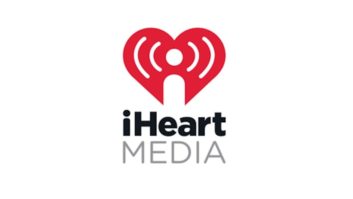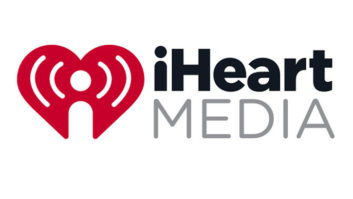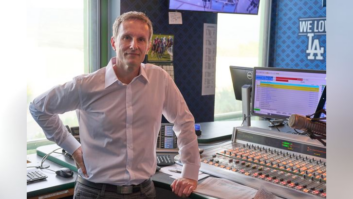Technology modernization and cost savings remain priorities for iHeartMedia, according to Chairman/CEO Bob Pittman.
He commented as the company released its latest financial report.
iHeartMedia posted a $41.3 million loss in the third quarter, though revenue grew over the same period a year ago. Its consolidated revenue in the period was $1.01 billion, up 5.8% year over year. Excluding political advertising, Q3 revenue was up 2%.
The multiplatform group, which includes its radio stations and network business, was challenged, with revenue of $620 million, down 1% versus prior year, according to the filing with the U.S. Securities and Exchange Commission. When you take away political revenue, the decline was 3%. (Cumulus Media and Beasley Media Group reported declines in quarterly radio revenue in the past week.)
Digital revenue at iHeart was up 13% in the quarter, with podcast revenue contributing $114 million. The digital audio group reported $301 million in revenue in Q3, about 31% of iHeartMedia’s total in the quarter.
Its audio and media services group, which includes Katz Media Group and RCS, produced revenue of $90 million, up a whopping 45% YoY, the increase primarily due to political revenue driven by the election cycle.
The company said modernization and cost-cutting moves are expected to generate $150 million of annual cost savings in 2025. Added to earlier moves, it now says it expects a total of $200 million of year-over-year savings next year.
“Technology is the key to increasing our operating leverage because it allows us to speed up processes [and] streamline legacy systems, and enables us to take another significant step in our modernization journey. We have flattened our organization, eliminated redundancies and broken down silos, which will have a major impact on costs,” Pittman said in a statement.
On the earnings call, he talked a bit about how the company is using AI and new technology to reduce expenses.
“A company like iHeart can benefit enormously from new technology, and I think this cost cutting and restructuring of the company and how we do business is a good example of that. We expect this new technology to continue to fundamentally alter the cost structure of our company. It allows us to bring down costs and improve margins,” Pittman said on the call.
The announcement of financial results came shortly after stories in several news outlets about another round of job cuts. Air personalities and programmers at numerous iHeart stations have been cut, according to the reports.
The Hollywood Reporter quoted a spokesperson this week saying, “Although in a company of 10,000 people very few jobs have been affected, there have been some.” The publication put the number at “less than 5 percent” of the company, which would translate to as many as 500 jobs, but the article did not put a number on it.
Pressed on the call by analyst Jim Goss with Barrington Research Associates to explain how cost cutting affects the quality of the air product, Pittman said technology now allows the company to put talent on air in any location.
“I think what we are doing is not getting rid of air talent, what we are able to do now since we have the technology is to take air talent at any location and put them on the air in another location. It allows us to substantially upgrade the quality of talent we have in every single market. And allows us to project talent into situations where they can have the most impact;” Pittman said.
He continued: “It’s all about companionship. With great talent, everyone wants to be their friend. When you look at Ryan Seacrest, everyone wants to be his friend. Or Charlamagne the God, or Bobby Bones, or Steve Harvey. We are increasing our relationship with the consumer and we are using technology to do it. What that means is there isn’t a spot for everybody. Just because you live in the market doesn’t mean you are the best person for that slot,” he said. Pittman said technology allows programmers to choose the best talent for every time slot on every station regardless of where they live.
Among slides in its investor presentation was one showing the growth of revenue from its digital business over the past four years or so:

iHeartMedia also announced this week that it had entered into a “transaction support agreement” with a group of debt holders representing approximately 80% of the term loan and notes, to exchange $4.1 billion of existing debt and extend maturities by three years.
Rich Bressler, iHeartMedia’s president, COO and CFO, said the company expects its new notes and term loans to have maturities ranging from 2029 to 2031 and slightly reduce its debt level.
“Overall, this transaction strengthens the company’s financial flexibility, while providing iHeart with ample runway to accelerate its strategic growth initiative,” Bressler said on the earnings call.
The company had debt of $5.2 billion as of Sept. 31, prior to the new agreement.
iHeartMedia’s outlook for fourth-quarter revenue is up high single digits.
“We feel good about next year because it’s a continuation of this year’s advertising recovery. The sense I feel from the election this week, that regardless of your political beliefs, people think this is very good for business,” Pittman said.





